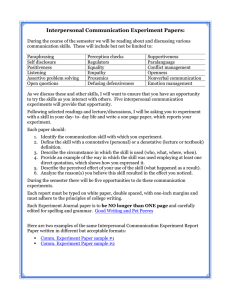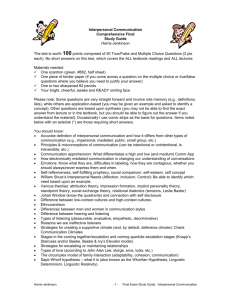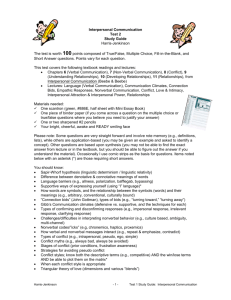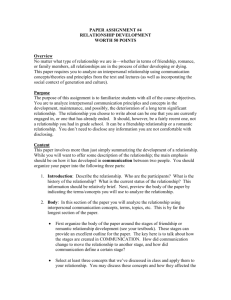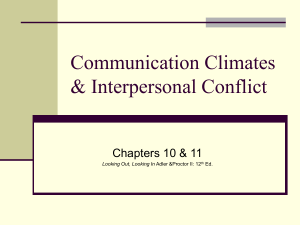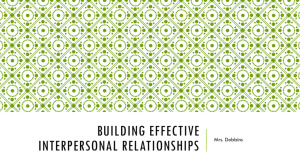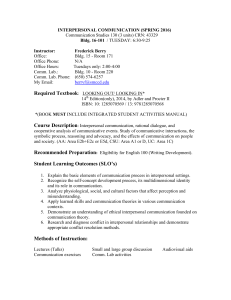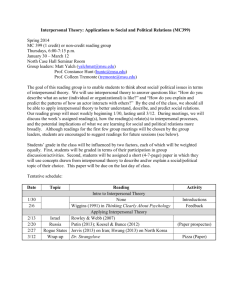Interpersonal Conflict - Seattle Central College
advertisement
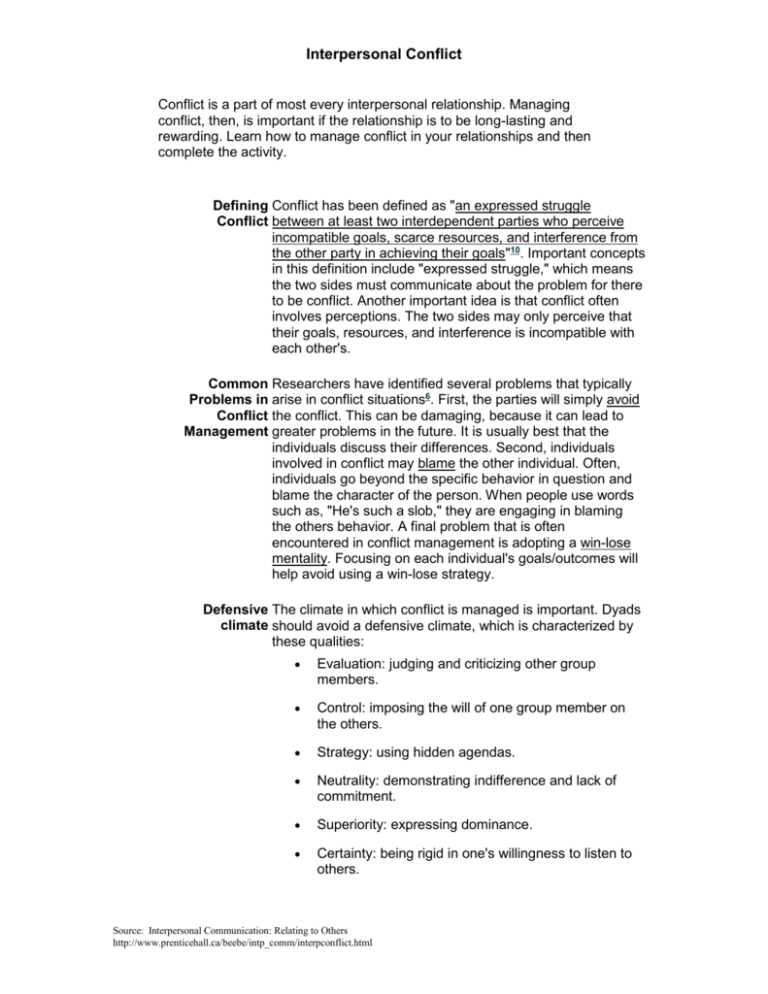
Interpersonal Conflict Conflict is a part of most every interpersonal relationship. Managing conflict, then, is important if the relationship is to be long-lasting and rewarding. Learn how to manage conflict in your relationships and then complete the activity. Defining Conflict has been defined as "an expressed struggle Conflict between at least two interdependent parties who perceive incompatible goals, scarce resources, and interference from the other party in achieving their goals"10. Important concepts in this definition include "expressed struggle," which means the two sides must communicate about the problem for there to be conflict. Another important idea is that conflict often involves perceptions. The two sides may only perceive that their goals, resources, and interference is incompatible with each other's. Common Researchers have identified several problems that typically Problems in arise in conflict situations6. First, the parties will simply avoid Conflict the conflict. This can be damaging, because it can lead to Management greater problems in the future. It is usually best that the individuals discuss their differences. Second, individuals involved in conflict may blame the other individual. Often, individuals go beyond the specific behavior in question and blame the character of the person. When people use words such as, "He's such a slob," they are engaging in blaming the others behavior. A final problem that is often encountered in conflict management is adopting a win-lose mentality. Focusing on each individual's goals/outcomes will help avoid using a win-lose strategy. Defensive The climate in which conflict is managed is important. Dyads climate should avoid a defensive climate, which is characterized by these qualities: Evaluation: judging and criticizing other group members. Control: imposing the will of one group member on the others. Strategy: using hidden agendas. Neutrality: demonstrating indifference and lack of commitment. Superiority: expressing dominance. Certainty: being rigid in one's willingness to listen to others. Source: Interpersonal Communication: Relating to Others http://www.prenticehall.ca/beebe/intp_comm/interpconflict.html Interpersonal Conflict Supportive Instead, individuals should foster a supportive climate, Climate marked by these traits: Description: presenting ideas or opinions. Problem orientation: focusing attention on the task. Spontaneity: communicating openly and honestly. Empathy: understanding another person's thoughts. Equality: asking for opinions. Provisionalism: expressing a willingness to listen to the ideas of others. Additional Tips A few final tips11 can help insure that conflict is successfully managed: Conflict Can Be Constructive. Recognize that conflict can strengthen your relationships. Be Prepared. Plan how you will communicate about conflict in order to create a supportive climate. Be Involved. Do not withdraw from the conflict or avoid conflict situations. Withhold Quick Retorts. Be careful about what you say and how you say it. Review. Summarize what you have discussed and make plans to continue the discussion if time permits immediate resolution. Source: Interpersonal Communication: Relating to Others http://www.prenticehall.ca/beebe/intp_comm/interpconflict.html
